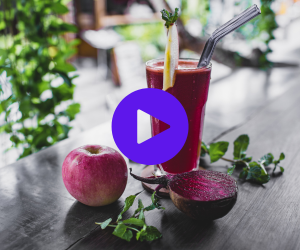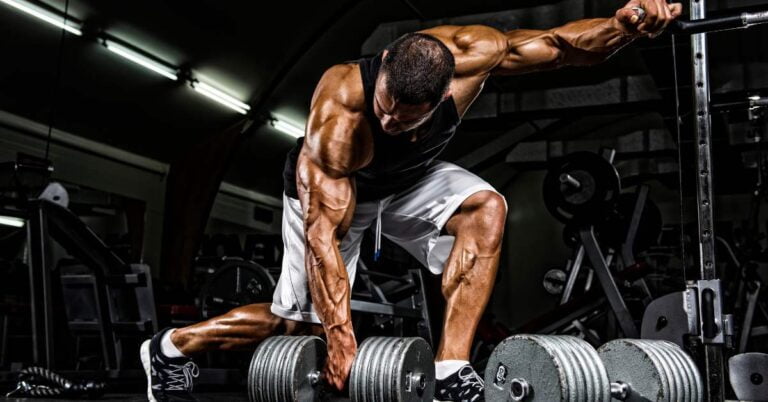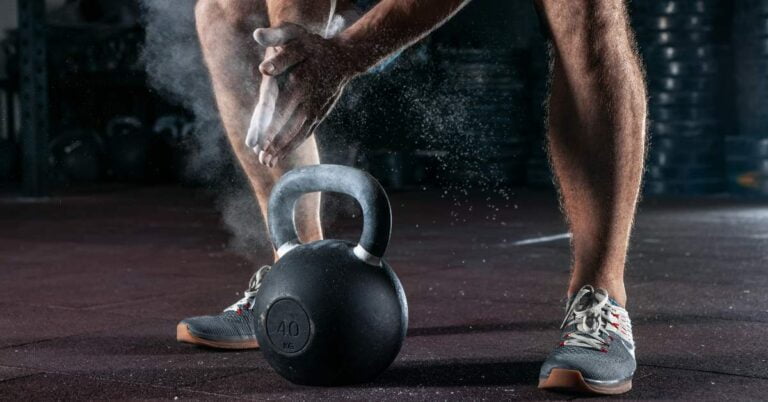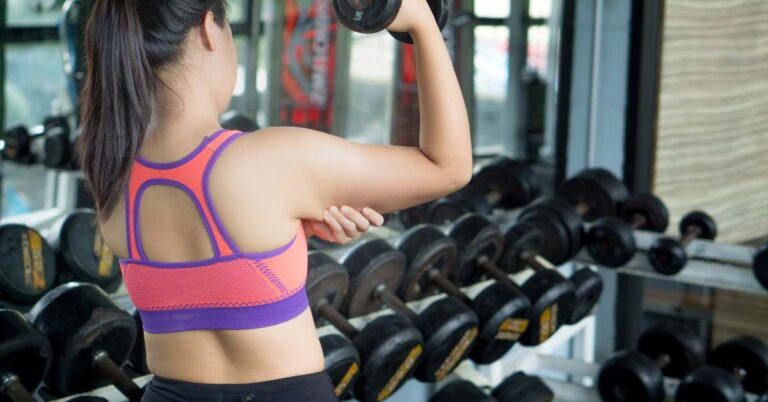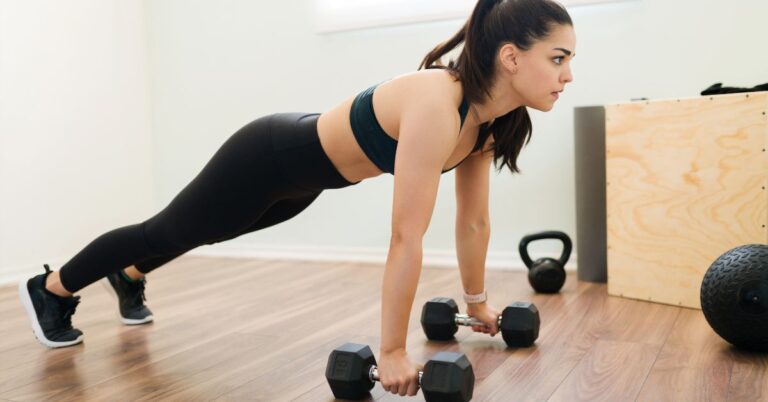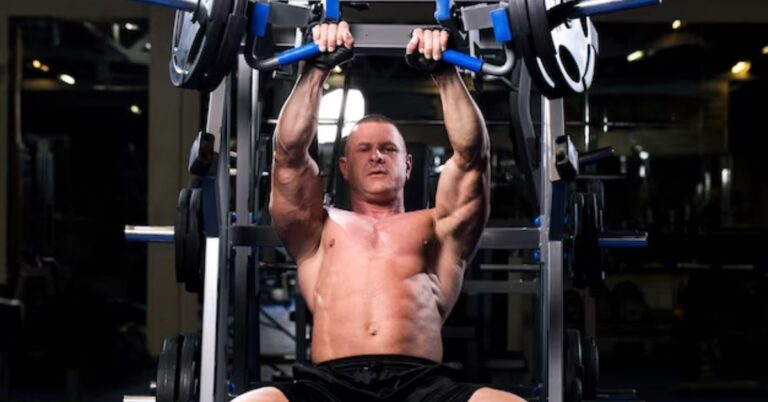The Best 7-Day Workout Diet Plan

Nutrition-related issues may become unnecessarily convoluted. But it is undeniable that your diet greatly influences your ability to make development in the gym. This essay will highlight various concepts and applications to effect significant change. It will also act as a reference and highlight the meals high in nutrients that one should include in their daily workout diet plan.
Foods to Include in Your Workout Diet Plan
Carbohydrates, proteins, and fats are the three macronutrients important for sustaining biological functioning and promoting changes in strength and composition. We must eat all three macronutrients in sufficient amounts to maximize development properly. Let’s look at the essential elements your gym diet plan has to have to help you lose weight and build muscle.
Protein
Mainly, most gym visitors would be fully aware of the significance of taking protein. Similarly, protein is crucial for recovery and repair, which is why it is necessary. A nutrition plan for the gym must contain protein. The body experiences tension and strain during exercise. The muscles suffer slight injuries as a result of this. Protein is thus required to repair the damage. Without it, recuperation times would be longer, and it can cause persistent weariness.
Lean meats, eggs, and dairy products are among the animal products that have the most significant protein. Similarly, it’s also in lower amounts in foods like seeds, nuts, legumes, beans, and soy.
Fats
Frequently, fats are wrongly assumed to be the main contributor to weight gain. Although they are crucial to the absorption and transportation of nutrients, fats are not the cause of this. In addition, they may benefit the synthesis of hormones and the heart’s health.
While particular forms of fat are more advantageous than others in gym diet regimens, all types of lubricants may have a favorable influence on health. Recent research has shown that saturated fats are not as bad as previously thought; instead, you should concentrate on unsaturated fats. Avocados, seeds, nuts, peanut butter, fish (salmon, tuna, mackerel), oils (olive, peanut), and soy products are a few examples of unsaturated fat foods that you may include in your meal plan for the gym.
Carbohydrates
First, since carbs are the body’s primary energy source, they significantly impact how an activity is fueled. Second, carbohydrates come in two main varieties: complicated and straightforward. The names indicate how long it takes to digest complex carbohydrates, which do so more slowly than simple carbohydrates.
Additionally, complex carbs are very nutritious and provide the body with a sustained, slow release of energy. Conversely, simple carbs have minimal nutritional value, even though they give the body quick-acting, short-term power.
To maintain a balanced gym diet plan, you should eat complex carbs like whole grains, beans, nuts, fruits, and vegetables.
Diet at the Gym: Post-Workout Foods
Post-workout nourishment has two purposes: first, it helps muscles recover, and second, it restores energy. The emphasis should thus once again be on eating high-quality protein and carbohydrate diets.
As previously considered, the strain of exercise results in tiny rips in the muscles that need to be patched up. As a result, eating protein will trigger a process called muscle protein synthesis (MPS). Additionally, it will start the healing process and stop muscle deterioration.
Furthermore, it’s commonly accepted that the timing of proteins is crucial for optimizing development. However, many recent studies have shown that the overall amount of protein consumed each day—rather than the timing—is more significant.
High-protein meals like lean beef, chicken, hog, and turkey, as well as dairy products, seeds, quinoa, and almonds, should thus take precedence. Additionally, protein supplements like bars and shakes may be a helpful tool for quickly increasing protein consumption.
Carbohydrates should be included in the post-workout diet plan since the energy used during activity has to be replenished. Therefore, your gym diet plan must include the required nutrients for muscular growth.
Protein and carbohydrates should be combined for a suitable gym diet plan, influencing recuperation. As a result, this promotes the production of protein and glycogen (energy). Additionally, a 3:1 carb-to-protein ratio is advised for maximizing recovery.
Pre-workout foods for the gym
To provide the body with energy, it needs to endure the whole exercise and prioritize carbs in all pre-workout meals and snacks. Therefore, performance will suffer if energy levels are below ideal levels, which will subsequently affect our pace of adaptability.
To prepare the body for performance, consume complex carbs, such as whole grains, oats, beans, nuts, fruits, and vegetables. Also, keep in mind that they take time to digest, so avoid eating them just before the exercise. Instead, complex carbohydrates should be consumed one to two hours before the activity to allow for complete digestion.
Next, emphasize simple carbs in your food plan for the gym since they digest more quickly and give you more energy. It could even be advised to eat some simple carbohydrates.
For instance, a pre-workout, energy-boosting snack may include white bread, jam, granola, cereal, sports drinks, and fruit.
Although the emphasis should primarily be on carbs, eating some protein before going to the gym is still vital. Therefore, it is crucial to maintain sufficient protein levels throughout each day to promote muscle healing and development.
Ideal 7-Day Diet and Exercise Chart
Although calories and macronutrients are crucial, the best diet for the gym must also have a good impact on health. All three macronutrients are ingested in this diet, are high in vitamins and minerals, and avoid nutrient-poor foods.
Let’s find you a 7-day eating plan for the gym in the meantime:
Day 1
Breakfast: Oats Banana Pancakes with Protein Shake
Lunch: Multigrain Roti with Palak Chicken and Avocado Bell Pepper Salad Bananas as a pre-workout snack (Post-Workout)
Dinner: Sprouts vegetable salad, peas paneer curry, and brown rice
Day 2
Breakfast: Oatmeal fort with seasonal fruits and Greek yogurt
Lunch: mango juice, Fish curry, multigrain bread, and a veggie salad
Exercise Snack: Bread with jam
Dinner: Broken wheat khichdi, carrot raita, egg whites, and a vegetable salad are also served.
Day 3
Breakfast: fried eggs, Protein Shake with Whole Grain Toast
Lunch: chicken, broccoli, and quinoa upma
Exercise Snack: Dried Fruits & Mixed Nuts
Dinner: Brown rice, cucumber raita, lean beef, vegetable curry, Young potatoes, Milk Chocolate
Day 4
Breakfast: Apple Juice and Honey Oats.
Lunch: Grilled Chicken Salad, Whole Grain Bread
Exercise Snack: Toast with Peanut Butter
Dinner: Brown rice, chicken, broccoli, and a methi protein shake
Day 5
Smoothie for lunch Breakfast: Scrambled Egg Whole Grain Toast
Lunch: Grilled chicken roti rolls with vegetables. Green Salad
Exercise Snack: Dried Fruits & Mixed Nuts
Dinner: Stir-fried chicken, Chocolate Milk with Spring Onion, Peppers, and Broccoli
Day 6
Breakfast: Whole Grain Toast with Oatmeal and Orange Juice
Lunch: Whole Grain Chicken Wrap with Black Beans, Peppers, and Greek Yogurt.
Peanut butter and apple before exercise
Dinner: Multigrain roti and keema bhurjiLean Beef Mince Sweet Potato Protein Shake
Day 7
Breakfast: Nut-topped Oatmeal Smoothie
Lunch: Chicken over whole wheat pasta and a green salad
Exercise Snack: Granola or Cereal
Dinner: Salad with cooked green peas and fish curry Milk, Brown Rice, and Garden Peas
Overall, the advice above will be helpful, but remember that every person is unique regarding nutrition. Your dietary needs will depend on your physical characteristics and the objectives you set for yourself.
For instance, fat reduction and muscular gain are two overall objectives. Therefore, calorie restriction is necessary to lose weight since it will trigger the breakdown of body fat that has been deposited. On the other hand, in terms of muscle development, more calories must be consumed to enhance muscle size since doing so would hasten the recuperation process. Therefore, a gym food plan must include both micro and macronutrients.
The requirements for macronutrients for muscle building and fat reduction are comparable. But, first, both should continue to consume a lot of protein. Protein is necessary for mass-building if you want to increase muscles. As a result, protein’s involvement in fat reduction is to limit the breakdown of muscle tissue.
So, for energy and replenishment, carbs are crucial. As a result, those who want to gain muscle mass and reduce weight should get the bulk of their calories from carbohydrate sources.
While eating good fats is crucial, reducing overall fat consumption aids in calorie restriction most successfully. This is because fats have the highest calorie density per gram at nine calories. So, for instance, four calories are in every gram of protein and carbs.
Dietary Dos and Don’ts
For the best results from your gym eating plan, this last section will highlight many dos and don’ts to keep you on the right track with your nutrition.
Do’s:
- Eat the three macronutrients.
- Make sure you consume a variety of fruits and vegetables to ensure that you are getting enough vitamins and minerals.
- Choose complex carbohydrates over simple carbs in particular.
- Make sure you consume protein consistently throughout the day.
- Consume more unsaturated fats than trans fats and saturated fats.
- Limit your intake of foods that will harm your health and your development at the gym.
- Maintain appropriate hydration levels.
Don’t:
- As each macronutrient has a unique role, you should eliminate one from your diet.
- Skip meals, particularly before or after an exercise.
- Consume “heavy” complex carbs too soon before starting a workout.
- over-reliance on simple carbohydrates as a source of energy
- Make bad dietary decisions to gain calories.
Avoid these Foods in Your Workout Diet Plan
While healthy nutrition can improve performance and adaptation, it may also harm development and well-being. Therefore, the three foods listed below should be avoided or consumed as little as possible.
For instance, trans fats are a form of dietary fat whose effects on health have repeatedly been shown. While trans fats do exist in nature in very tiny amounts, they are infamously dangerous. Many snack items, fast food, and baked products contain artificial trans fats.
Similarly, many meals heavy in simple carbohydrates are low in nutritious value and high in sugar. Simple carbohydrates might give you a quick energy boost, but overeating them can harm you.
Consuming a lot of simple carbs will initially cause a surge in blood sugar. However, very rapidly, your blood sugar levels may plummet, and you can feel sleepy, which is unsuitable for performance or activity.
Alcohol is a drug that should also be used sparingly, although not strictly a food. Alcohol may be best avoided since many studies suggest that it hinders recovery and even interferes with gaining muscle. As a result, it is not a good idea to include it in your gym meal plan while you are detoxing.
Conclusion
In conclusion, numerous nutrition-related factors must be considered to maximize fitness improvement and overall health. As a result, improving your performance and health by following the advice in this article and the workout Diet plan is possible.






